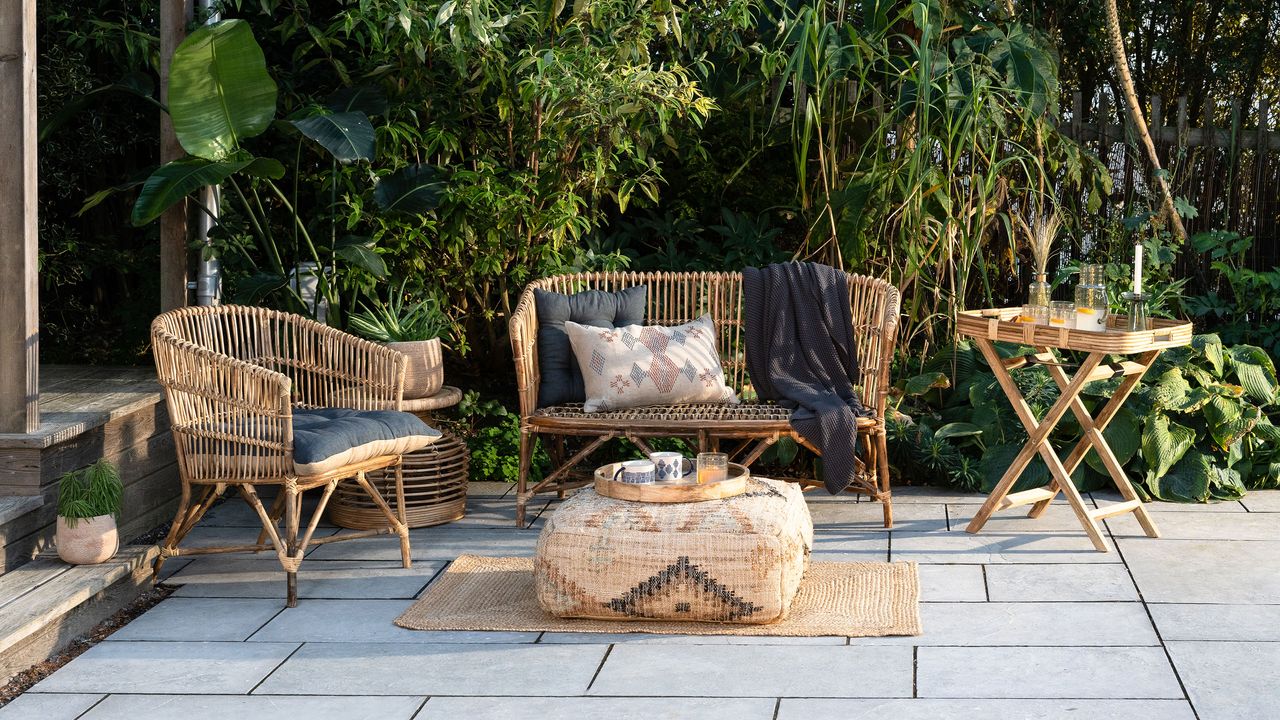When it comes to choosing garden furniture, durability is a key factor, especially with the unpredictable UK weather. Whether you’re looking for a set that will withstand summer showers or the occasional frost, selecting the right material is essential to ensure your garden furniture lasts for years. Here’s a guide to the most durable materials for garden furniture, helping you make an informed choice for your outdoor space.
1. Teak Wood: The Gold Standard
Teak is often considered the gold standard for durable garden furniture. This hardwood is rich in natural oils, making it incredibly resistant to moisture, rot, and insect damage. Teak’s dense grain and high oil content mean it doesn’t warp or crack easily, even in extreme weather conditions. While it’s more expensive than other woods, teak requires minimal maintenance and can last for decades, developing a beautiful silvery patina over time.
2. Aluminium: Lightweight and Rust-Resistant
Aluminium is a popular choice for garden furniture due to its lightweight nature and resistance to rust. It’s perfect for the UK’s rainy climate, as it won’t corrode when exposed to moisture. Aluminium furniture is often powder-coated, providing an extra layer of protection and a range of colour options. It’s also easy to move around, making it ideal for those who like to rearrange their outdoor space.
3. Rattan (Synthetic): Weatherproof and Stylish
Synthetic rattan, often made from polyethylene, is an excellent choice for those who want the classic look of natural rattan with added durability. Unlike natural rattan, which can deteriorate when exposed to moisture, synthetic rattan is UV-resistant, weatherproof, and easy to clean. It’s lightweight yet sturdy, and it can withstand both the sun’s rays and the winter chill, making it a versatile option for UK gardens.
4. Stainless Steel: Modern and Resilient
Stainless steel garden furniture offers a sleek, modern look with impressive durability. Its high resistance to rust, corrosion, and staining makes it a suitable choice for coastal areas or gardens exposed to salty air. While stainless steel can get hot in direct sunlight, it’s incredibly strong and long-lasting. It’s also easy to maintain with regular cleaning to keep it looking its best.
5. Cast Iron: Traditional and Robust
Cast iron is a traditional material known for its strength and durability. While it’s heavier and more prone to rust than aluminium or stainless steel, cast iron garden furniture is incredibly sturdy and can withstand high winds and heavy use. To prevent rust, look for cast iron furniture with a powder-coated or galvanised finish, and be prepared for occasional maintenance to keep it in top condition.
6. Hardwoods (Other than Teak): Durable and Attractive
Other hardwoods, such as eucalyptus, acacia, and iroko, are also durable options for garden furniture. These woods are naturally resistant to rot and insects, though they may require regular oiling or staining to maintain their appearance and longevity. While not as long-lasting as teak, they offer a more affordable alternative without sacrificing too much in terms of durability.
7. High-Density Polyethylene (HDPE): Eco-Friendly and Tough
High-density polyethylene (HDPE) is a synthetic material that’s becoming increasingly popular for garden furniture due to its eco-friendly properties and durability. Made from recycled plastics, HDPE is resistant to fading, cracking, and moisture. It’s also heavy enough to withstand strong winds yet easy to clean and maintain. HDPE furniture often mimics the look of wood, making it a practical and sustainable choice for the garden.
8. Wrought Iron: Decorative and Long-Lasting
Wrought iron garden furniture is known for its decorative designs and long-lasting durability. Similar to cast iron, it’s incredibly strong but prone to rust if not properly cared for. Regular painting and maintenance can help extend its lifespan, and it’s perfect for those who want a vintage or traditional look in their garden.
Final Thoughts
When choosing the most durable material for garden furniture in the UK, it’s essential to consider factors such as climate, maintenance, and personal style. Teak and synthetic rattan are excellent choices for low-maintenance durability, while aluminium and stainless steel offer modern aesthetics with long-lasting resilience. Whether you opt for classic wood or contemporary metal, investing in quality materials will ensure your garden furniture remains a functional and stylish feature in your outdoor space for many years to come.
